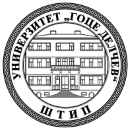“DIGITAL PANOPTICON” AS AN OBJECTIVE REALITY OF THE GLOBAL WORLD

Abstract Modern technologies expand opportunities for human development: life dynamics increase, digital platforms are created for educational, scientific, as well as political purposes, new opportunities arise for controlling authorities, and communicative practices are improving. At the same time, there are new dangers to which people are exposed. The report, prepared for the start of the Davos Economic Forum in 2019, focuses on technological instability and introduces the concept of “Digital panopticon”, which refers to new forms of social control – face recognition, gait analysis, microchipping, digital lip reading. Thanks to the spread of these technologies, we are moving into a world in which all data about us is collected, stored and tested through artificial intelligence algorithms. Digital technology provides an unprecedented level of control over societies. In socio-political practice, the term “digital totalitarianism” has appeared, which is understood as total digital control with the help of cameras, gadgets, digital applications, artificial intelligence programs for human behavior and actions to further build its rating in society. The most famous practice of digital totalitarianism is the social credit system in China, which was introduced in 2014. Analogues of the social credit system are also used in other countries, for example, in the USA, Germany, Great Britain, and France. The danger of an invasion of the state and society into the private life of a person in the context of digitalization does not decrease, but rather increases. The omnipotence of security agencies and the related restrictions on human rights and freedoms is a problem not only of authoritarian societies, but also of democratic states. Combining the maximum use of the opportunities provided by digital technologies with the benefits for humans and the secure information space, which is created, to a decisive extent, by the efforts of the state, we see the effective development of the information society in the 21st century.
Keywords: Church-state relations, secularism, church, Russian orthodox church, politicization of religion, religious values.
